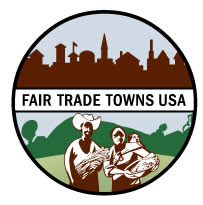Tuesday, December 15, 2009
1) Great video on how coffee is grown, picked, processed, and roasted from the show, Dirty Jobs. This really helps to give a sense of the hard work farmers put in to make the coffee we enjoy daily. Also, it's important to keep in mind while watching this video that the farmers working here are from the United States, and the equipment they use can be more advanced than farmers in developing countries where most of Fair Trade coffee is grown. Fortunately, Fair Trade helps to improve the equipment available to these farmers (more on that later), but not all cooperatives are at a point where they can afford such things. One new development that is important in the Fair Trade Movement is the Responsible Sourcing Project, a collaborative effort between Walmart, Sam's Club, USAID, TransFair USA, and several Brazil non-profit organizations. The partners of the project committed to giving $1.9 million in investments and technical support to help 5,000 farmers from the Brazilian states of Sao Paolo, Minas Gerais and Espiritu Santo increase coffee quality, improve cooperative management and enhance marketing between 2007 and 2010. In Brazil, there are many small coffee farmers, but the large majority of exports is controlled by large companies. This project hopes to help the small-scale farmers by providing them with the tools they need to access more international markets. In addition to helping with the investment money, Walmart has also launched "Sam's Choice," a Fair Trade Certified coffee brand that includes three Brazilian Fair Trade coffees. More information on this project is available here. There are also pictures posted of one of TransFair USA's trips to Brazil to visit the cooperatives that are receiving part of this investment money. These are available on TransFair's Flickr, and they seem to complement this video on coffee growing well. So, with that in mind:
2) There's a really great discussion on Fair Trade that began with a post on the GoodEater blog. If you scroll down, one of the responses to this great blog post is also really interesting. Feel free to add to that conversation! There's definitely more to be said! GoodEater Blog Post
These two points both bring up the sometimes thorny situation of corporation involvement in the Fair Trade movement. Obviously, there are pros and cons about this, and this blog will be touching on some of those later. In the meantime, what are your THOUGHTS on the involvement of corporations in Fair trade? Is it a good thing? A necessary evil? Selling out? Helping out? Let us know what you think!
Friday, December 4, 2009
Interesting story on Fair Trade by Seattle KBCS 91.3's Green A.C.R.E.S. radio show. The show interviews TransFair USA's Paul Rice and Theo Chocolate.
Click to hear the story!
Tuesday, December 1, 2009
Fair Trade Videos
What are your favorite Fair Trade videos? Post a link!
The Banana Wars and Fair Trade
 A banana worker in the Dominican Republic takes Fair Trade Certified bananas to be washed and packed
A banana worker in the Dominican Republic takes Fair Trade Certified bananas to be washed and packed This is a long one!
The EU is close to reaching an agreement with Latin America that will put an end to the 16-year so-called “banana wars” that have favored Caribbean, African, and Pacific region countries over larger banana producing countries in

(Image Above): A banana worker on a Fair Trade Certified farm in Ecuador
Nevertheless, many Europeans and citizens of the ACP countries are outraged. Banana imports to
 Our neighbors to the north just added a new Fair Trade Town to their growing list. Olds, a town in
Our neighbors to the north just added a new Fair Trade Town to their growing list. Olds, a town in The effort to become a
Congratulations to
The information for this post came from the CTV
Thursday, November 12, 2009
 Welcome to the Fair Trade Oakland blog! This blog will chronicle Oakland's effort to become a Fair Trade Town.
Welcome to the Fair Trade Oakland blog! This blog will chronicle Oakland's effort to become a Fair Trade Town.In becoming a Fair Trade Town, Oakland would be joining thirteen declared Fair Trade Towns from across the United States. Fair Trade Towns are part of the Fair Trade Towns USA national movement uniting community activists from across the country who are dedicated to the principles of Fair Trade. By organizing our communities at the local level a tangible impact can be made on the US market to demand that international justice and equity for producers, artisans, farmers, and workers around the world is a priority of our system of international commerce.
In order to become a Fair Trade Town, several criteria need to be met. Fair Trade Towns must:
• Form a steering committee that meets regularly
• Ensure a range of Fair Trade products are available in local stores, cafes, and other venues
• Engage local organizations, such as places of worship, schools, hospitals, and offices in serving Fair Trade products
• Work with the town or city council to pass a resolution supporting Fair Trade and the local campaign
• Attract media attention and visible public support, including press and radio
Fair Trade Towns provides a way for people with similar visions, in the same community, to make a difference that they can see. Making Oakland a Fair Trade Town is an exciting process, and one that requires assistance from activists and interested members throughout the community. If you are interested in helping this effort, please start by spreading the word about this blog and our efforts! To get involved, contact us at FairTradeOakland@gmail.com, or attend one of our meetings. The next meeting will be Wednesday, November 25th. We'll make more announcements about the details as the date approaches.

